As FIFA kick-starts in Russia, amidst protests over Russia supporting Bashar al-Assad ‘s regime in Syria, here are some the most politically charged sporting events.
From 14 June, the eyes of the world have been fixed on Russia, as the host nation kicked off against Saudi Arabia in the first game of the eagerly anticipated 2018 FIFA World Cup.
Russia secured the right to host football’s most famous tournament in 2010, but the process was marred in controversy. A probe into alleged corruption around Russia’s bid, as well as Qatar’s bid to host the 2022 World Cup, led to ex-Fifa ethics investigator Michael Garcia resigning in protest in 2014.
Fractured relations
Meanwhile, human rights organizations have called for a boycott of the tournament to protest Russia’s backing of Syrian President Bashar al-Assad’s regime. Clearly, the 2018 World Cup will take place against a backdrop of political uncertainty.
But this is nothing new. The World Cup has long been one of the most politically charged sporting events. The four matches highlighted below provide a snapshot of how often the footballing and political worlds collide:
1. Italy versus France, 1938
During the 1938 World Cup in France, just one year before the outbreak of the Second World War, Italy took on the host nation in the quarter-finals.
At the time, Italy was a fascist nation, led by Benito Mussolini. The Italian football team, famous in the modern era for wearing blue, wore black shirts and gave a fascist salute before kick off. Ahead of the game, Mussolini reportedly sent an ominous message to the team, with the instruction: “win or die”.
Fortunately for the players, Italy went on to beat France, and won the overall competition, beating Hungary in the final. Following Italy’s victory, the tournament would not be played again until 1950.
2. East Germany versus West Germany, 1974
By the end of the Second World War, Germany was a divided nation, and soon after split into East and West. The Berlin Wall, which stood until 1989, acted as a physical reminder of the nation’s political divisions.
At the 1974 World Cup, hosted in Germany, teams from the East and West met in the group stages. The East Germans, largely seen as the more inferior of the two sides, sealed victory with a 1-0 win over their western counterparts, topping the group in the process.
However, it was West Germany that eventually went on to win the tournament, beating the Netherlands in the final.
Following West Germany’s World Cup victory in 1990, the two teams united on 20 November of that year. Germany are the reigning World Cup champions, and will begin their defence against Mexico on 17 June.
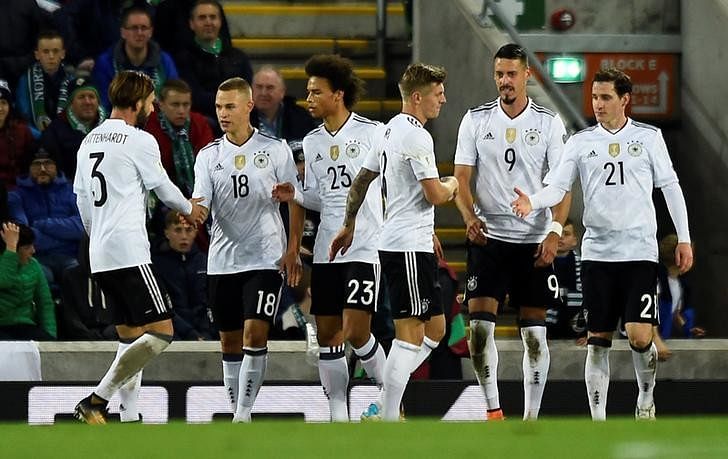
3. Argentina versus England, 1986
On 2 April 1982, Argentina invaded the Falkland Islands, a British overseas territory in the South Atlantic over which Argentina claims sovereignty. The Falklands War claimed the lives of about 650 Argentine and 255 British servicemen, as well as three Falkland Islanders.
Four years later, during the 1986 World Cup, Argentina were pitted against England in the quarter-finals. Reports described the first half as “cagey” and “bad-tempered”, with grudges between the two nations allegedly spilling onto the pitch.
However, the match is best remembered for Argentine footballer Diego Maradona’s “Hand of God” goal. The diminutive striker scored after forcing the ball beyond England goalkeeper Peter Shilton with his hand. Despite complaints from the England players, the goal stood, giving Argentina a 1-0 lead.
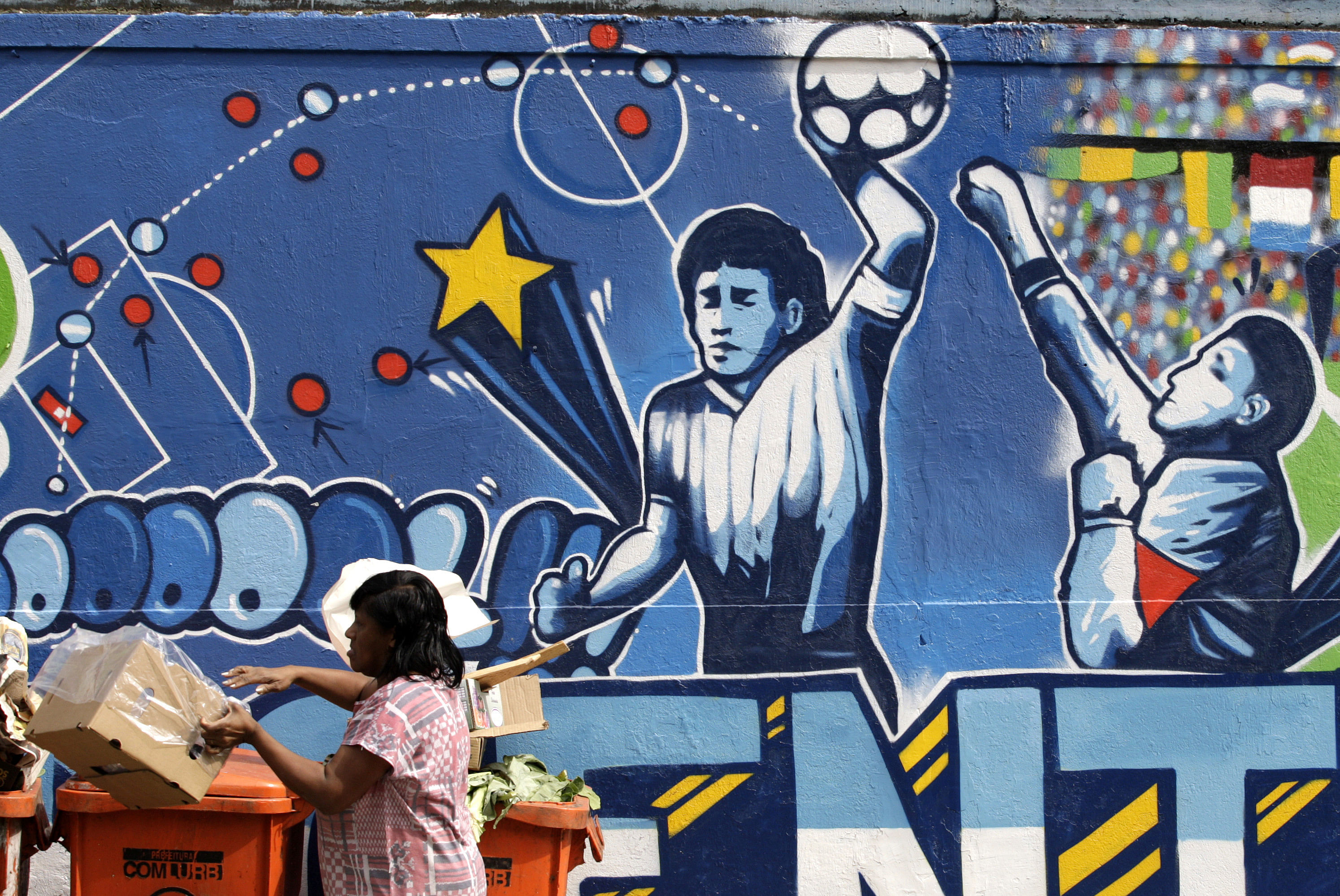
If there were disputes over Argentina’s first goal, there could be none with the second, which saw Maradona evade several challenges before slipping the ball underneath Shilton. Argentina then proceeded to win the 1986 World Cup, defeating West Germany.
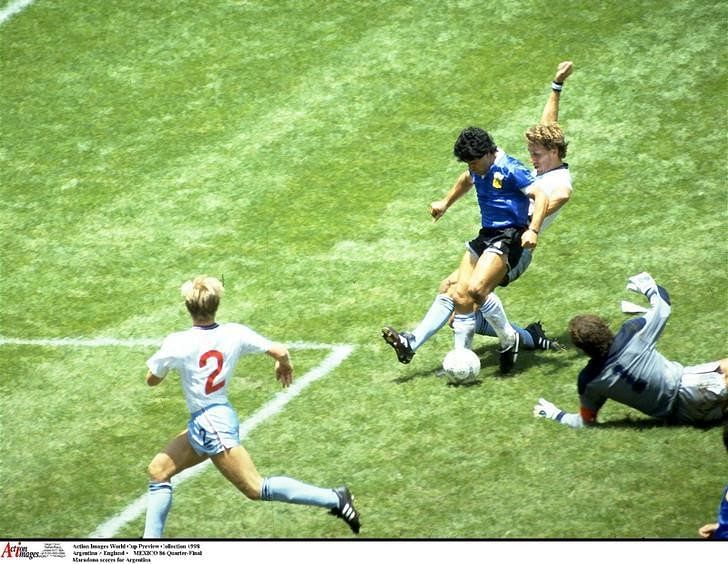
4. United States versus Iran, 1998
Tensions between the United States and Iran have simmered for more than half a century. However, relations between the two countries deteriorated dramatically after the overthrow of the US-backed Shah of Iran, Mohammad Reza Pahlavi, in the 1979 Iranian Revolution and the US Embassy hostage crisis, which lasted 444 days from 1979 to 1981.
So when the two nations were drawn against each other at the 1998 World Cup, US Soccer Federation president Alan Rothenberg referred to it as “the mother of all games”, reports FourFourTwo magazine.
Football – 1998 FIFA World Cup – Group F – Iran v United States of America – Stade Gerland, Lyon – 21/6/98 Pic : Darren Walsh / Action Images The USA & Iran teams have a combined team photo before the game The Iranian and US teams combined for a photo before their 1998 game.
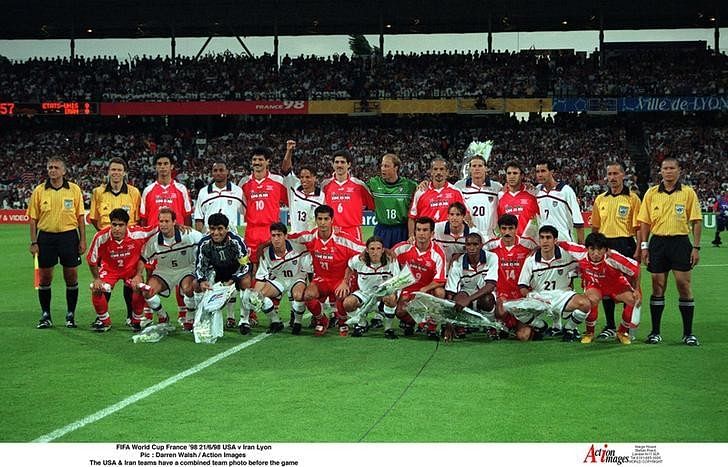
Arguably the most politically charged match in World Cup history, the game ended in an Iranian victory and the US being knocked out of the tournament.
According to FourFourTwo, US defender Jeff Agoos said at the time: “We did more in 90 minutes than the politicians did in 20 years.”
Sport’s unifying power
While it may not always be the case, major sporting events do have the capacity to improve relations between nations in conflict.
At this year’s Winter Olympics, for example, athletes from North and South Korea marched under a single “unified Korea” flag during the opening ceremony.
Then in April, the leaders of North and South Korea met, marking the first such meeting between the two nations in 10 years and the first time a North Korean leader has set foot in the South in 65 years.
This article was originally published by the World Economic Forum. Read it here.


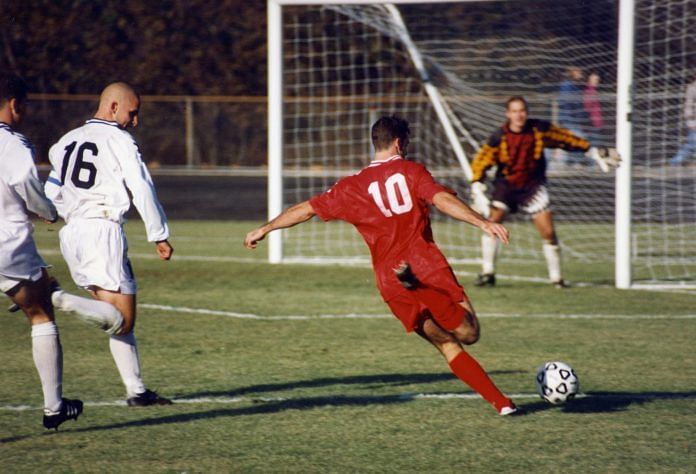

When the public has given mandate to AAP, there should be no obstacle like LG in discharge of their duty. Absolutely right the bureaucrats are attending office but doing on instructions of LG who holds all administrative powers. There was no need to spend huge money on election when elected govt is helpless to move a single step ahead without permission of LG and these heavy expenses of election should have been used for serving purified water to delhites through bureaucrats . Better option for future also.